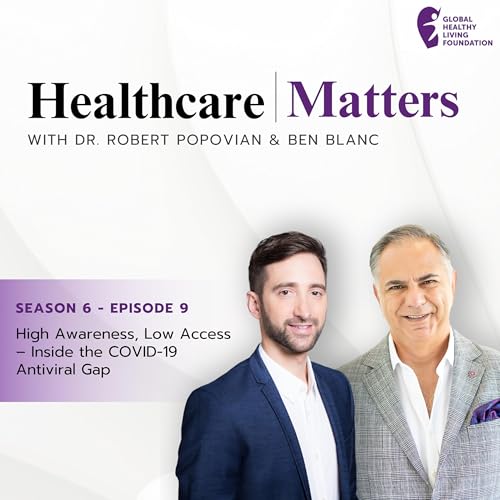In this episode of Healthcare Matters, hosts Dr. Robert Popovian and Ben Blanc are joined by Peter Pitts, former FDA Associate Commissioner and President of the Center for Medicine in the Public Interest. Together, they unpack the sweeping personnel cuts at HHS, ongoing instability at the FDA, and how it all may threaten the future of drug innovation in the U.S. With delays in leadership appointments, policy misalignment across agencies, and increased uncertainty from pricing reforms like the Inflation Reduction Act, pharmaceutical companies may hit pause—and patients may pay the price.
Tune in for a timely discussion on how chaos in science policy reverberates through clinical innovation and patient access.
Among the highlights in this episode:
03:09: Peter Pitts shares his FDA background and warns against viewing staff consolidation through a purely numerical lens—emphasizing the nuance of function and legal responsibility
04:07: Peter breaks down FDA’s structure, clarifying that the majority of its 18,000 staff are non-political, career public health officials—not industry influenced
06:33: Peter explains that gutting senior leadership slows down innovation and drug approvals, as regulatory coordination is weakened
07:42: Peter details ongoing leadership instability across FDA’s key centers (drugs, biologics, devices), and notes the loss of progressive voices like Dr. Peter Marks and Dr. Patrizia Cavazzoni
08:32: Dr. Popovian adds that short- and long-term uncertainty in biopharma is significant, especially in oncology—a therapeutic area critical to innovation and patient survival
09:53: Peter warns that chaos and unpredictability undercut investor confidence, which could delay development in oncology, gene therapy, and rare diseases
11:10: Dr. Popovian reinforces that cancer care is now chronic care, and disruptions in FDA operations could rob patients of critical time and treatment options
11:42: Peter highlights misalignment between FDA and CMS, especially when CMS questions the validity of FDA-approved data—jeopardizing reimbursement
12:43: Dr. Popovian and Peter urge alignment between FDA and CDC guidance, citing conflicting vaccine messaging as a source of confusion for patients and providers
13:37: Peter underscores the need for improved communication and coordination between public health agencies to rebuild trust
15:06: Dr. Popovian raises concerns that instability and underappreciation will deter top scientists from public service roles at agencies like the FDA
17:21: Dr. Popovian explains that pharmaceutical companies are delaying R&D and trial investments due to regulatory uncertainty
18:35: Peter adds that companies may also pause research into new uses for existing drugs—despite their public health value—due to unclear FDA pathways
19:21: Dr. Popovian discusses how the Inflation Reduction Act (IRA) further complicates investment decisions, creating a “perfect storm” with FDA uncertainty
23:19: Ben emphasizes that policy uncertainty delays hope for patients awaiting new treatments—and that public accountability is more important than ever
24:03: Dr. Popovian shares some final thoughts
Contact Our Hosts
Dr. Robert Popovian, Chief Science Policy Officer at GHLF: rpopovian@ghlf.org
Ben Blanc, Director, Digital Production and Engagement at GHLF: bblanc@ghlf.org
A podcast series produced by Ben Blanc.
We want to hear what you think. Send your comments, or a video or audio clip of yourself, to podcasts@ghlf.org
Listen to all episodes of Healthcare Matters on our website or on your favorite podcast channel.
See omnystudio.com/listener for privacy information.
 27 m
27 m 17 m
17 m 17 m
17 m Jun 26 202530 m
Jun 26 202530 m 18 m
18 m Apr 25 202528 m
Apr 25 202528 m 27 m
27 m 23 m
23 m
